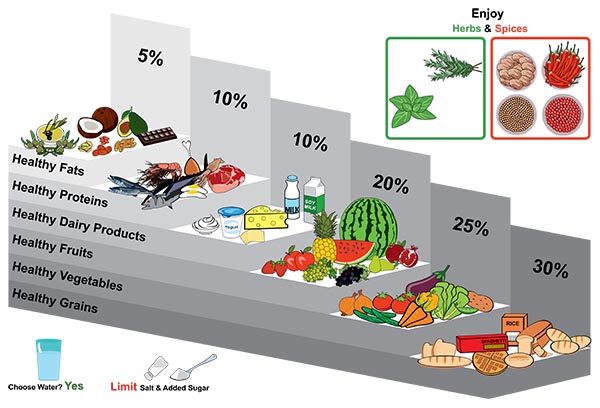Nutrition During Pregnancy
Nutrition Consultation Services in Brooklyn
Pregnancy Nutrition Consultations in Brooklyn
Nutrition is a key modifiable factor that affects birth outcomes and has long-term effects on the health of offspring. Patient nutrition risk and habits should be assessed early in pregnancy. Completion of a self-administered dietary questionnaire prior to seeing the clinician can be helpful.
General Recommendations
- Use of supplements
- Food avoidances/special diets/skipping meals
- Eating disorders
- Lack of resources for adequate nutrition
- Low intake of nutrient-dense foods (fruits and vegetables)
- High intake of added sugars and fats (fried foods, processed foods, desserts)
- Overweight or obesity
- Medical history of bariatric surgery or other conditions that cause malabsorption
- Substance misuse
Consultation with a trained specialist in maternal nutrition, such as a registered dietitian, is recommended for women with high nutrition risk.

Recommendations for Weight Gain
The incidence of pregnancy complications is higher at the upper and lower extremes of weight gain. The Institute of Medicine recommendations for weight gain during singleton pregnancy
- Body mass index (BMI) <18.5 kg/m2 (underweight) – weight gain 28 to 40 lbs (12.5 to 18.0 kg)
- BMI 18.5 to 24.9 kg/m2 (normal weight) – weight gain 25 to 35 lbs (11.5 to 16.0 kg)
- BMI 25.0 to 29.9 kg/m2 (overweight) – weight gain 15 to 25 lbs (7.0 to 11.5 kg)
- BMI ≥30.0 kg/m2 (obese) – weight gain 11 to 20 lbs (5 to 9.0 kg)
Healthy Dieting
Women should be counseled to eat a healthy diet during pregnancy. This includes plenty of fruits and vegetables, whole grains, low-fat dairy, and a variety of proteins. Nutrient-dense foods should be encouraged, and empty calories should be minimized or avoided. These eating patterns will help women meet nutrient needs without exceeding calorie needs. “Eating for two” during pregnancy is a misnomer, as women require no additional calories during the first trimester and only a moderate increase in calories (additional 340 to 450 kcal/day) in the second and third trimesters. Exact needs vary among women based on age, pre pregnancy weight, height, and activity level. Tools are available to help clinicians counsel women and for women to monitor their own nutrition.
Self-imposed dietary restraints can be problematic if essential nutrients are left out of the diet or weight gain is inadequate. However, certain foods should be limited or avoided during pregnancy because of potentially toxic effects. These include consumption of some types of fish, high caffeine intake, unwashed fruits/vegetables, unpasteurized dairy products, herbal products, liver-based foods, and undercooked meats.
Patients should be educated about the risk for and prevention of foodborne infections.
Pregnant women should limit seafood consumption to 12 oz. of cooked seafood (about three 4 oz. servings) per week, and completely avoid some types of seafood to minimize fetal exposure to mercury and other water-borne contaminants.
Vitamins and Minerals
The Institute of Medicine and the Centers for Disease Control and Prevention recommend multiple-micronutrient supplements (commonly called multivitamin supplements) for pregnant women who do not consume an adequate diet or may have malabsorption. Well-nourished women may not need multiple-micronutrient supplements, but in the absence of careful evaluation by a nutritionist, it is prudent to recommend them. At a minimum, the daily multiple-micronutrient supplement should contain key vitamins/minerals that are often not met by diet alone, such as:
- Preconceptionally and during the first trimester, women should take a folic acid supplement of 0.4 to 0.8 mg per day. Higher doses (4 mg per day) are recommended for women known to be at increased risk for offspring with neural tube defects (eg, history of a previously affected infant, maternal use of some anticonvulsant medications).
- Iron – 27 mg
- Folate – at least 0.4 mg (0.6 mg in the second and third trimesters)
- Calcium – at least 250 mg (elemental calcium 1000 mg per day)
- Iodine – 150 mcg (preferably in the form of potassium iodide)
- Vitamin D – 200 to 600 international units (exact amount is controversial)
- Excessive intake of vitamin A (greater than 10,000 international units per day) and/or iodine can have harmful fetal effects.
Request Your Consultation Now
Please call us today to setup your appointment for nutrition consultation at BellaDonna MD.
BellaDona Medical P.C © 2022. All Rights Reserved. Privacy Policy
